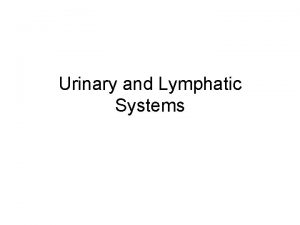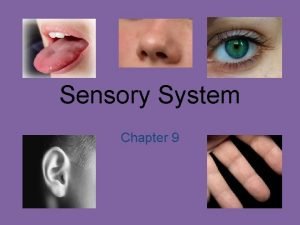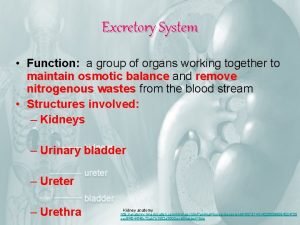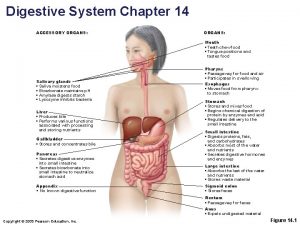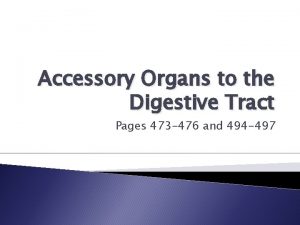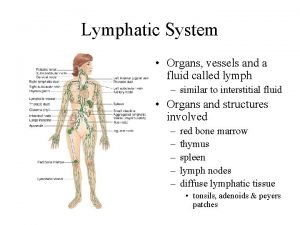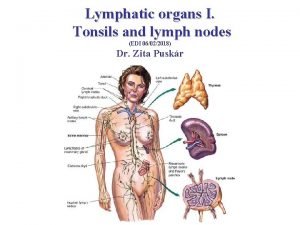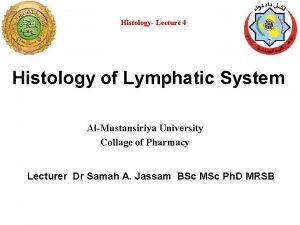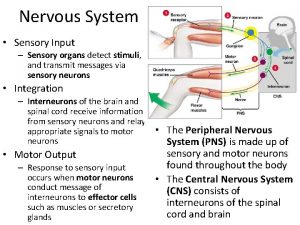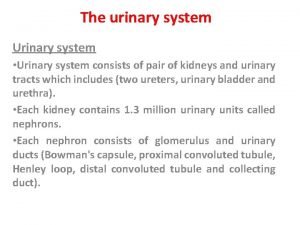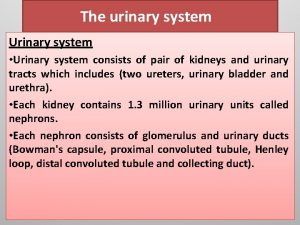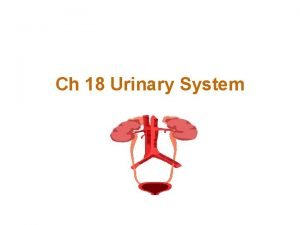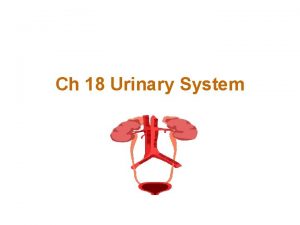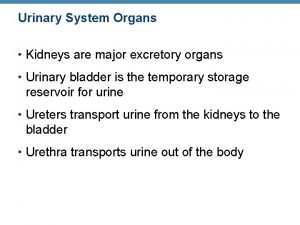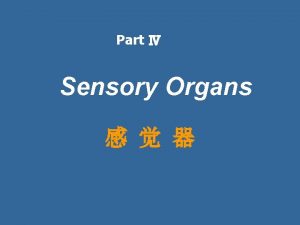The Urinary System Organs of the Urinary System









- Slides: 9

+ The Urinary System

+ Organs of the Urinary System

+ Kidneys Functions of the Kidneys n n n Remove metabolic waste products from the blood Secrete hormone erythropoietin, which stimulates the bone marrow to produce red blood cells Secrete hormone renin which helps regulate blood pressure Characteristics n Bean-shaped n Retroperitoneal position n Renal sinus – concave depression n Hilum – where the renal artery, vein, and ureter enter n Renal pelvis – area where urine is drained from the kidney n Calyces – smaller tubes in which the renal pelvis divides

+ Kidneys Cont. Layers of the Kidney n Renal cortex – outermost layer n Renal medulla – middle portion n Renal pyramids – triangularshaped areas of the medulla n Renal pyramids – portion of cortex between the pyramids n Blood enters the kidneys through the renal artery and exits through the renal vein

+ Nephrons Function and Parts n Waste products are removed n Each kidney has about 1 M n Renal Corpuscle n Glomerulus n Bowman’s capsule n Blood filtration occurs n Renal Tubule n Proximal convoluted tubule n Attached to Bowman’s capsule n Loop of Henle n Straighter tubule that curves back toward the renal corpuscle n Distal Convoluted tubule n Several combine to form collecting ducts n Collecting ducts – deliver urine to the renal pelvis, which empties into the ureters

+ afferent arteriole glomerulus efferent arteriole peritubular capillaries veins of the kidneys


+ n Glomerular Filtration n Takes place in the renal corpuscles (glomerulus) n Blood that contains wastes is forced into the glomerulus – glomerular filtrate n Depends on filtration pressure which is determined by blood pressure n Tubular Reabsorption n Second process n Glomerular filtrate flows into the proximal convoluted tubule n Where nutrients, water and ions are reabsorbed back into the bloodstream n Water reabsorption depends on ADH and aldosterone (hormones) n Tubular Secretion n Third process n Where substances (drugs, hydrogen ions, waste products) are excreted into the urine n Urine Composition n Water (mostly) n Urea n Uric Acid n Trace amounts of amino acids Urine Formation

+ Ureters, Urinary Bladder, Urethra n Ureters n Two n Carry urine from kidney to bladder n Peristalsis propels urine toward the bladder n Urinary Bladder n Expandable organ that stores urine n Up to 600 m. L on average n Detrusor muscle – contracts to push urine from the bladder to the urethra n Urethra n Tube that carries urine from bladder to the outside n Shorter in females Micturition n Process of urination Bladder distends with urine Stimulates stretch receptors in the bladder Parasympathetic nerves stimulate the detrusor muscle Sense the need to urinate Brain sends impulses to voluntarily contract the urethral sphincter to inhibit the need to urinate Voluntary decision to urinate relaxes sphincter Contraction of detrusor muscle and urine is expelled through the urethra
 Red and white blood cells difference
Red and white blood cells difference Sensory system organs
Sensory system organs Purpose of excretory system
Purpose of excretory system Major and accessory organs of the digestive system
Major and accessory organs of the digestive system Accessory organs of the digestive system
Accessory organs of the digestive system Major and accessory organs of the digestive system
Major and accessory organs of the digestive system Lymphatic system organs
Lymphatic system organs Hemicapsule
Hemicapsule Largest lymphoid organ
Largest lymphoid organ Organs of the sensory system
Organs of the sensory system
